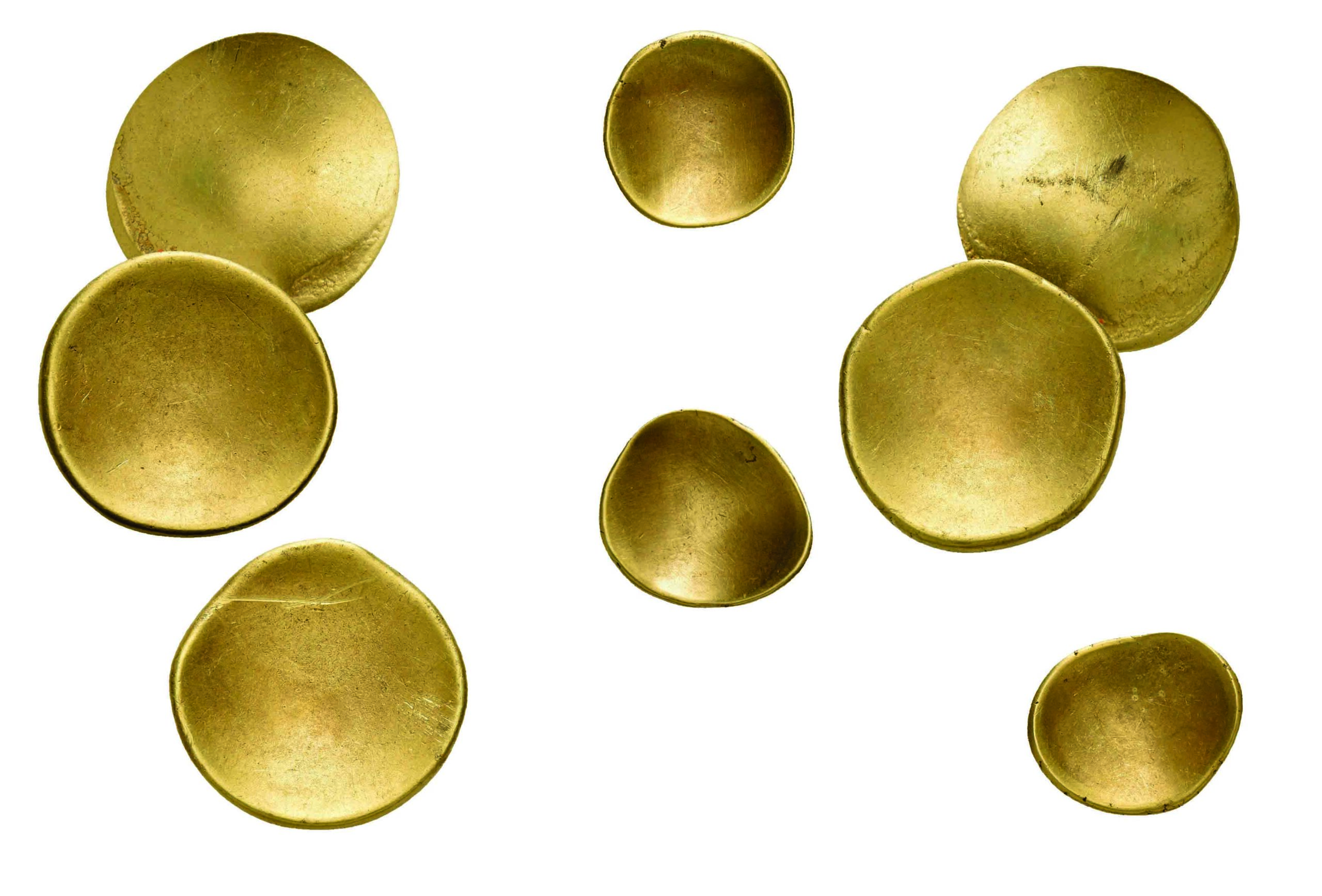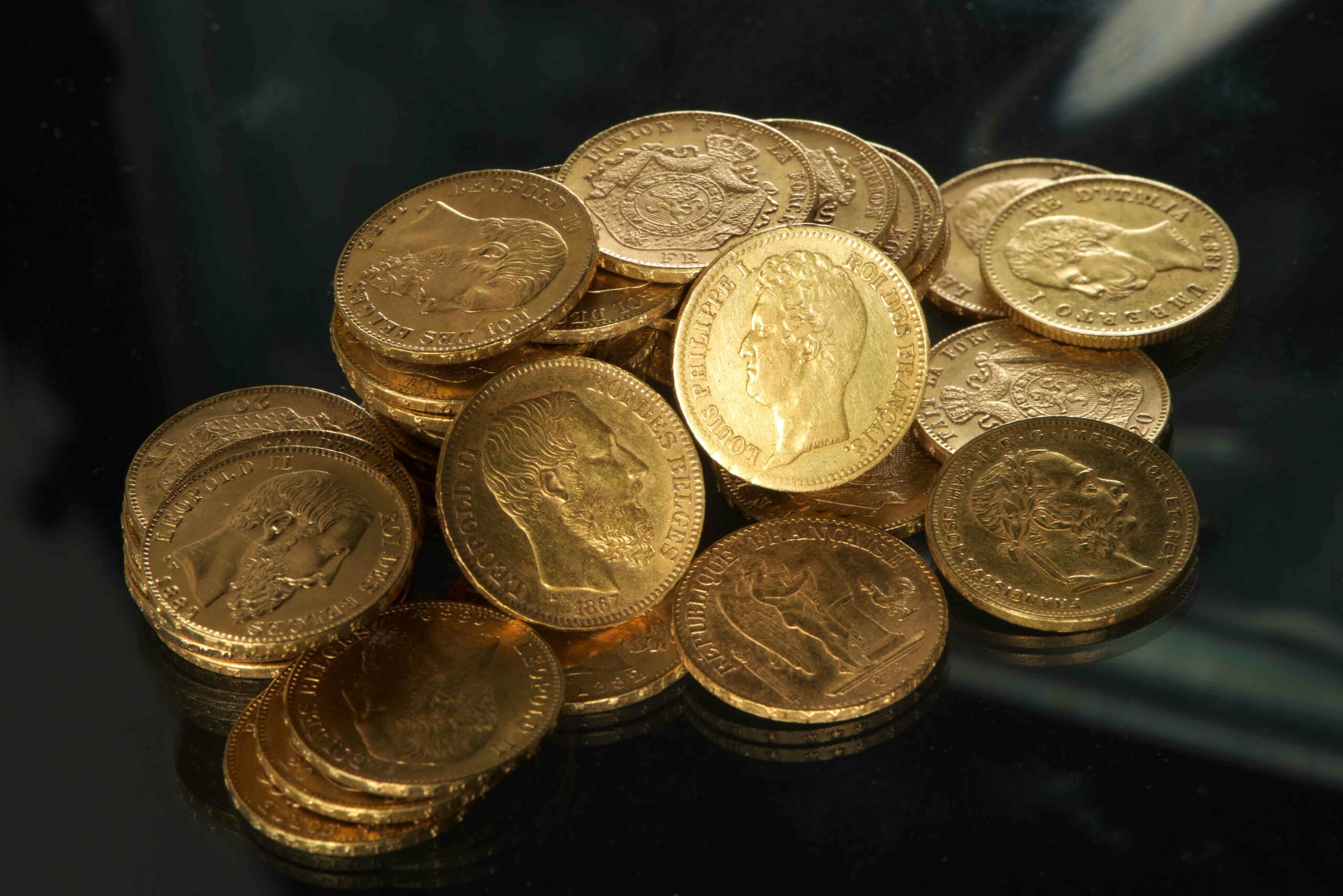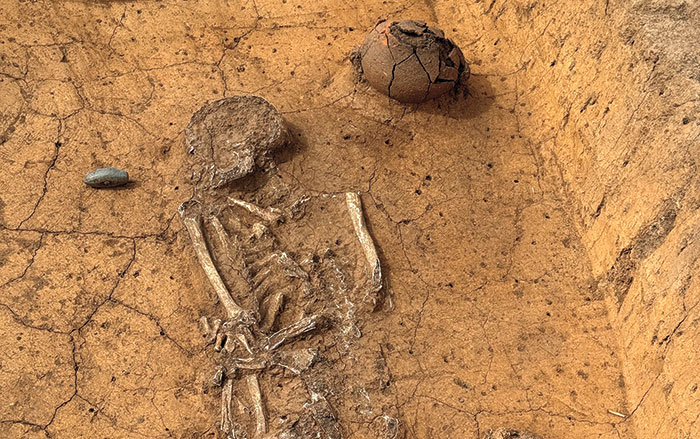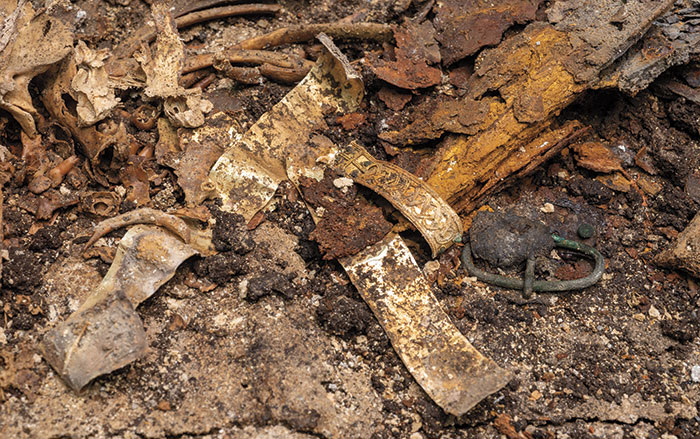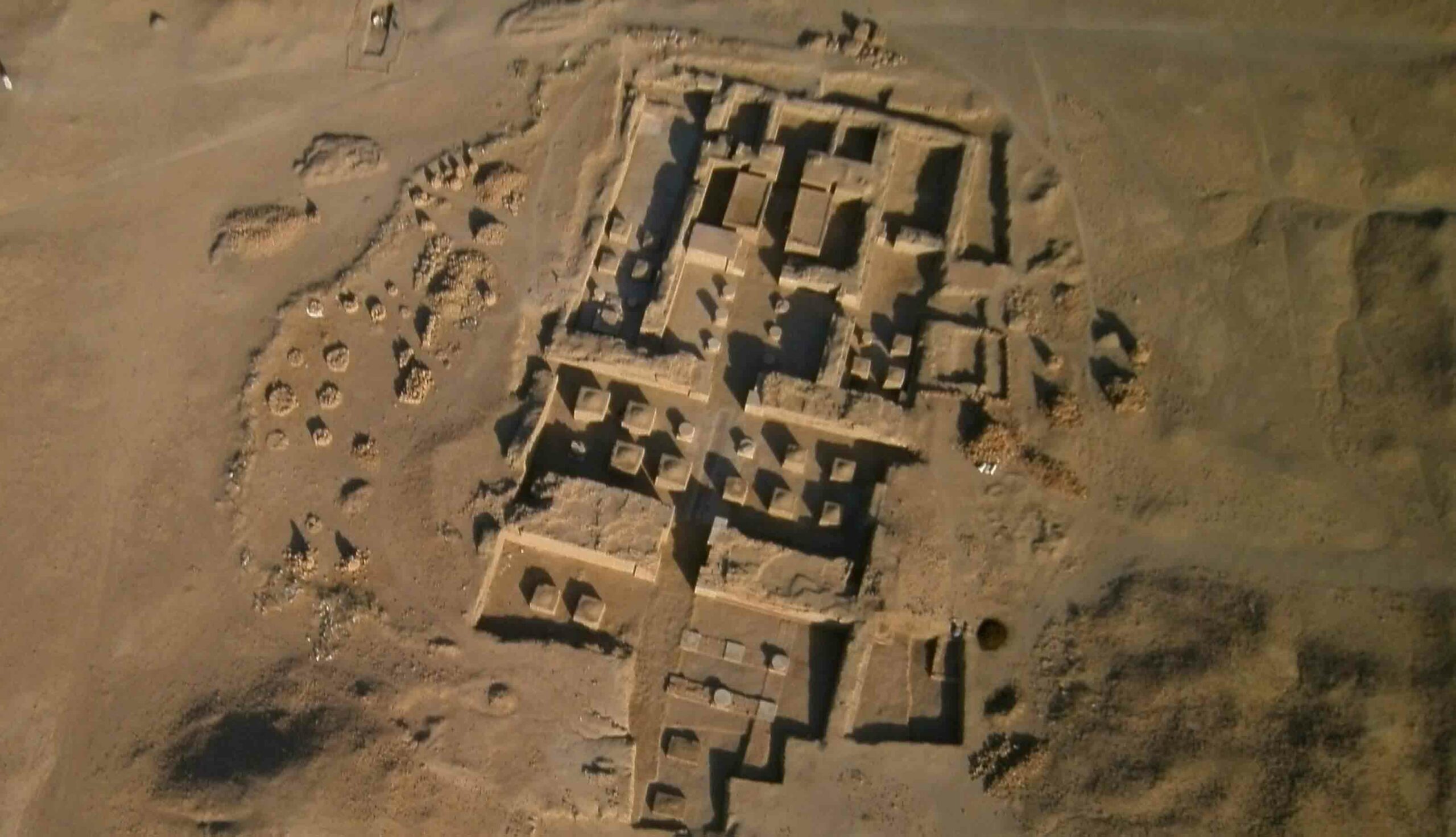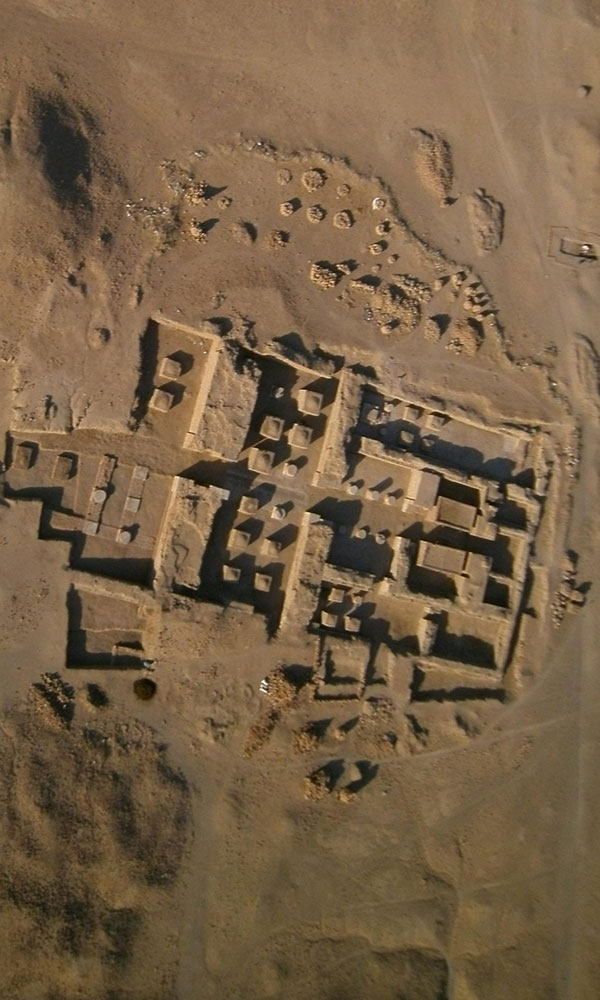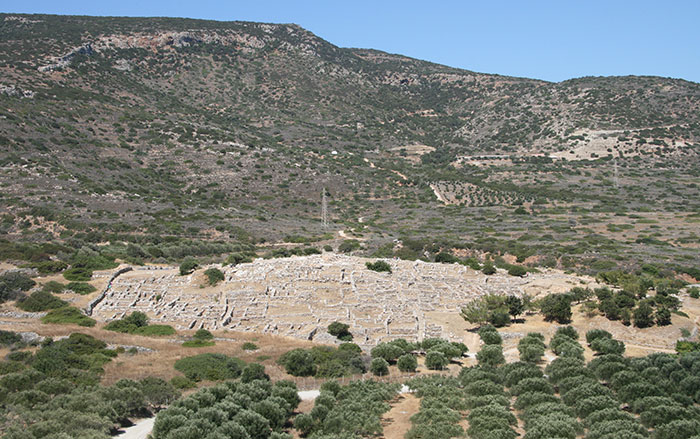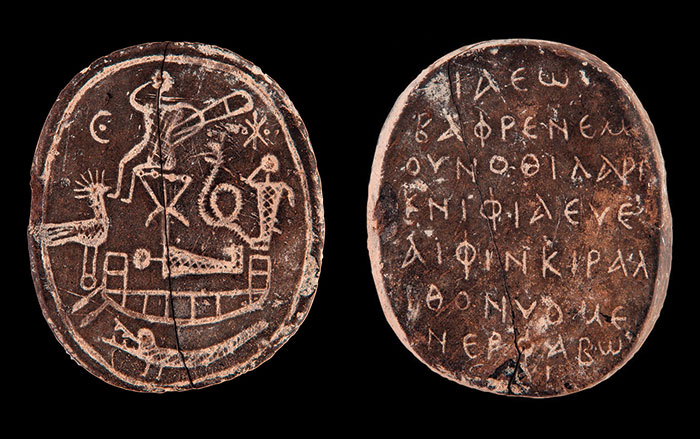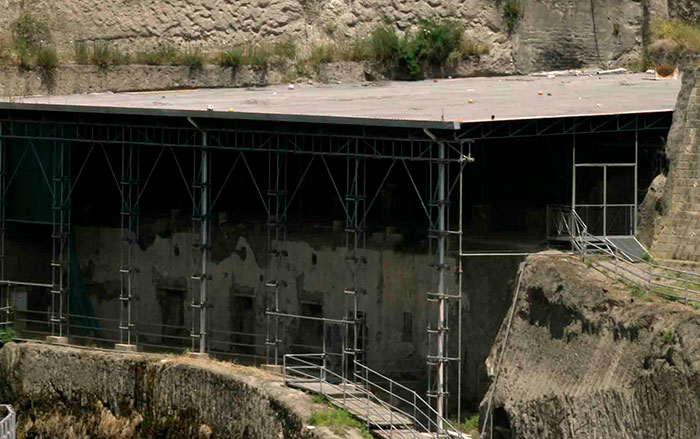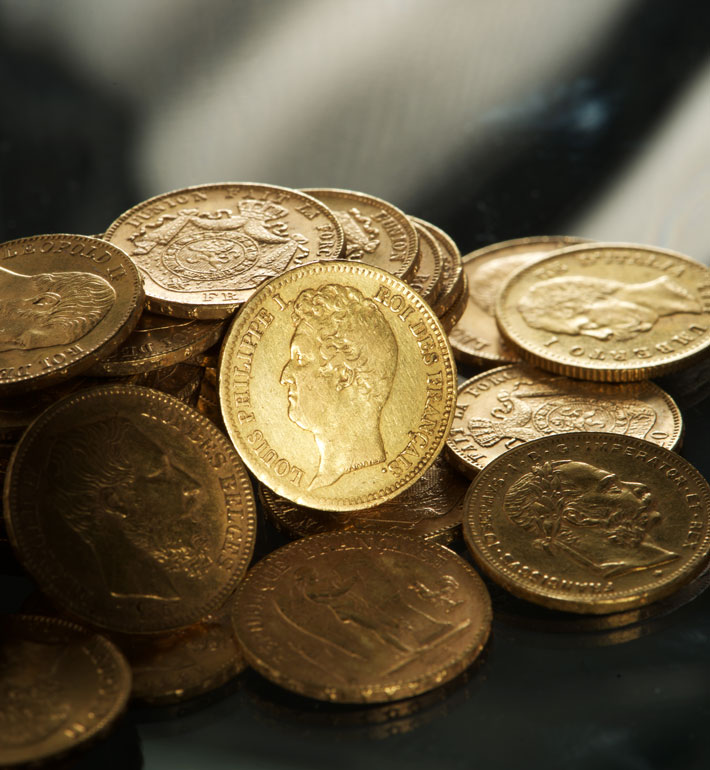
HAMBURG, GERMANY—A metal detectorist discovered a cache of gold coins dating between 1831 and 1910 in a field in northern Germany last fall. After recovering ten coins, Florian Bautsch alerted archaeologists who recovered 207 more during a two-week excavation. The coins had been minted in Belgium, France, Italy, but the team also recovered a piece of pasteboard with two seals bearing images of a swastika, an imperial eagle, and the stamp “Reichsbank Berlin 244.” The coins were probably placed in two separate pouches and buried during the last days of World War II under a tree, but were scattered when the tree was uprooted. Archaeologist Edgar Ring of the Lüneburg Museum told The Local that such limited edition coins belonged to the central bank during the Nazi era and had probably been stolen. To read about the study of military sites from this era, go to "Archaeology of WWII."


